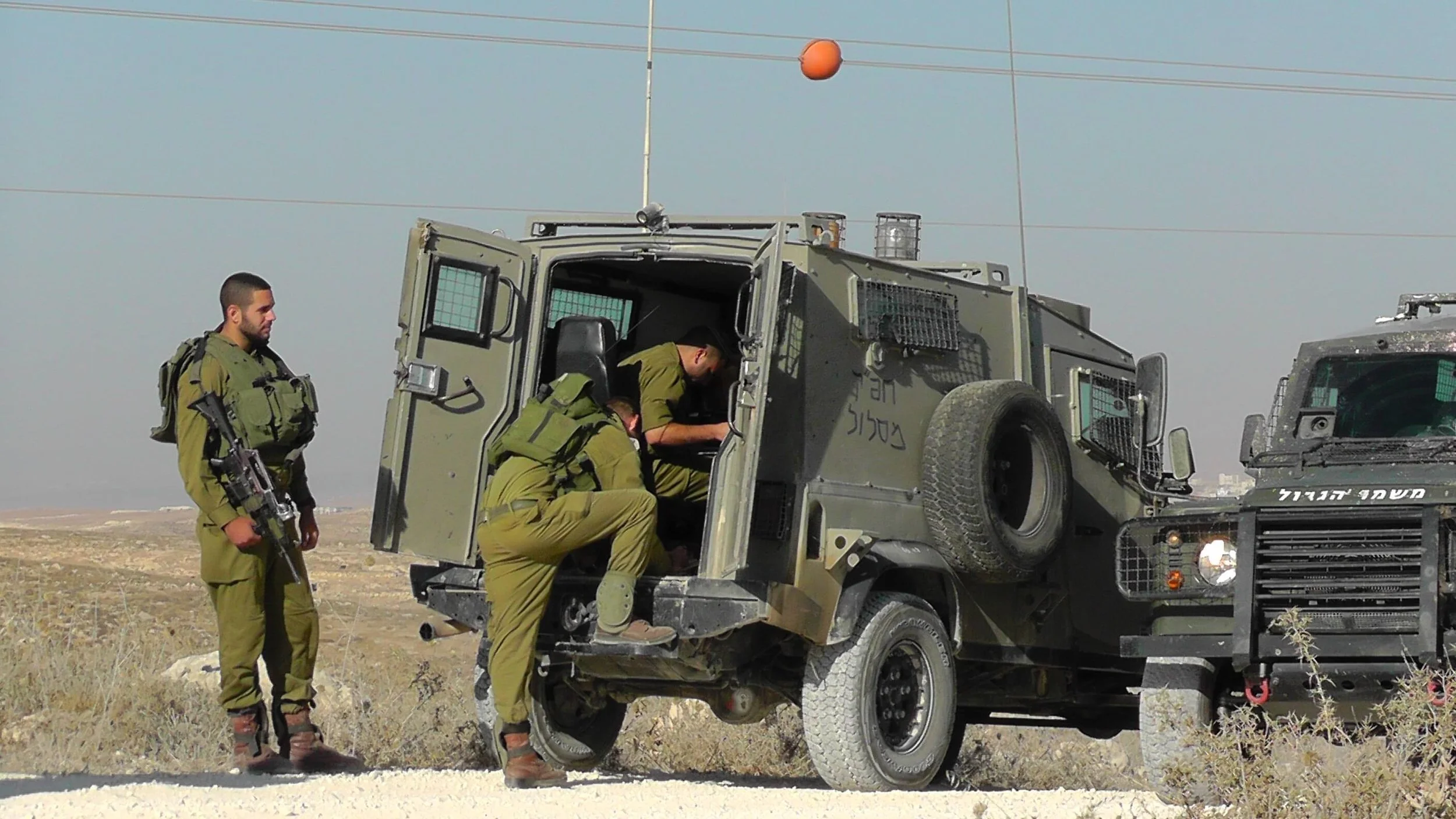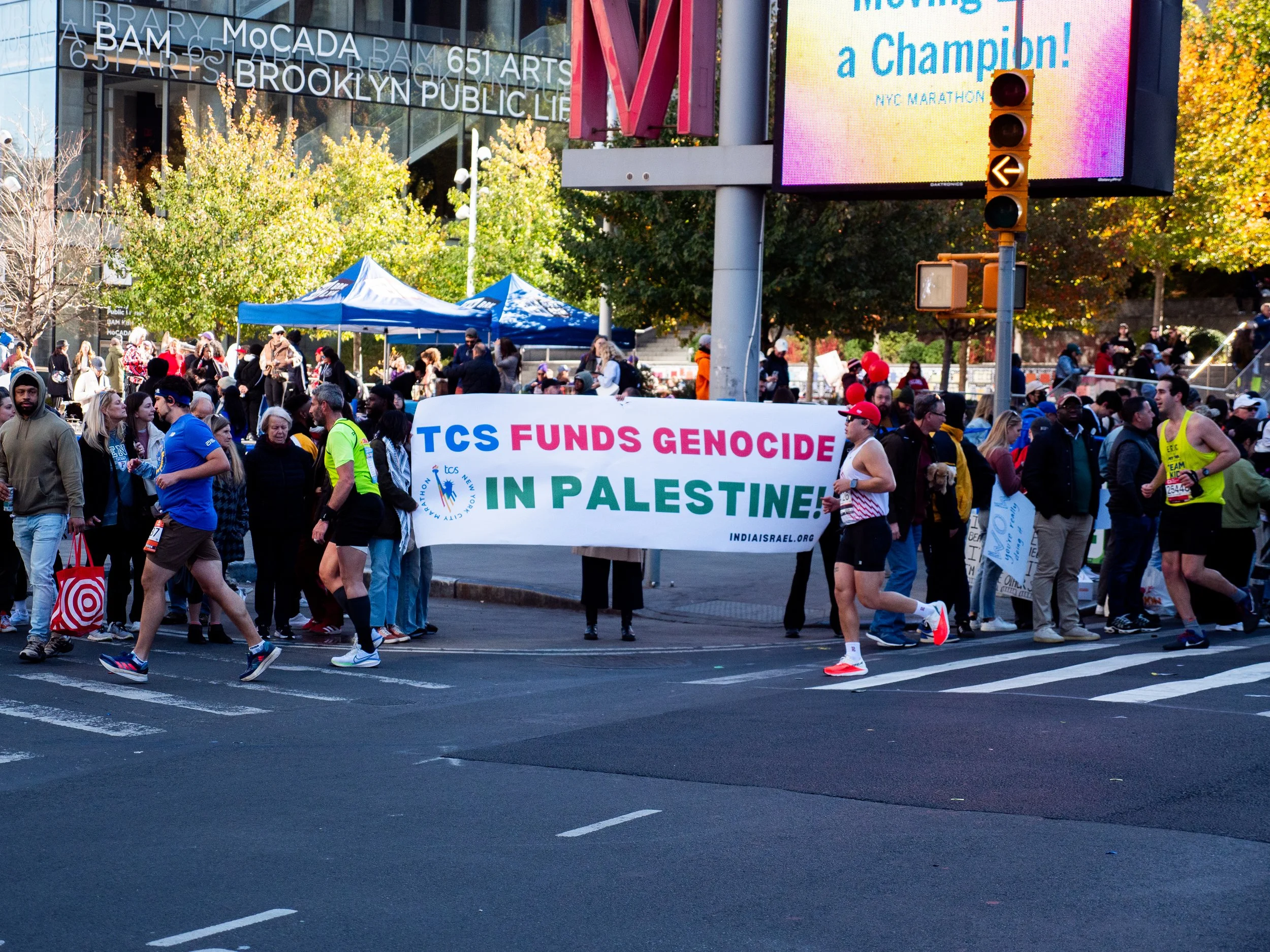Research Report
Tata Group has spent decades polishing its image as an ethical and visionary global company. This report rips that mask off. It exposes how Tata is deeply entangled in the machinery of occupation and war, hardwiring itself into the India–Israel–U.S. military and surveillance nexus. Tata manufactures F-16 fighter jet wings for Lockheed Martin, Apache helicopter fuselages for Boeing, and naval combat systems used by Israel. Through TCS, its IT arm, Tata runs the digital and banking infrastructure that powers Israeli state and settler institutions, including banks named in the UN database for financing illegal settlements.
Tata’s ties to Israel are not abstract. Tata’s Land Rover Defender chassis are turned into MDT “David” armored vehicles used to raid Palestinian neighborhoods. Its cloud services prop up Israel’s digital governance and military logistics. Behind the corporate gloss lies a conglomerate that profits directly from the dispossession and violence of occupation. Tata is not a bystander — it is an active architect of the systems that uphold the Zionist occupation of Palestine.
Executive Summary
“Architects of Occupation: The Tata Group, Indian capital and the India-Israel Alliance” details the extensive and multifaceted complicity of the Indian state, its capitalist class, and specifically the Tata Group, in supporting and profiting from the Zionist settler-colonial project and its ongoing military occupation and genocidal violence against the Palestinian people.
Through a dense network of corporate partnerships specializing in advanced weaponry, digital infrastructure, and automotive production, Indian capital has strategically positioned itself as a crucial partner for the Israeli state and its formidable military-industrial complex. This role is not incidental but is a deliberate strategy, deeply intertwined with the burgeoning strategic, economic, and ideological alliance between the Indian and Israeli states. The involvement is systemic, ranging from the co-production of sophisticated missile systems and fighter jet components used in bombardments of Gaza to the Indian state’s active importation of Israeli tactics of surveillance and colonial control.
At the heart of the India-Israel alliance stands the Tata Group, a corporate architect of occupation. The conglomerate’s complicity is comprehensive, providing the hardware of genocide, the machinery of daily oppression, and the digital backbone of apartheid. Through its subsidiary, Tata Advanced Systems Ltd (TASL), it is a core global provider of wings for all new F-16 fighter jets and fuselages for all AH-64 Apache attack helicopters—the primary aircraft used by the Israeli Air Force to bombard Gaza. Through its partnership with Israel Aerospace Industries (IAI), TASL manufactures the critical command systems for the Barak-8 missile, a weapon actively deployed by the Israeli Navy. Tata Motors, via its subsidiary, Jaguar Land Rover, supplies the foundational chassis for the MDT David light armored vehicle, a ubiquitous tool of the Israeli military used for patrols, raids, and the violent suppression of protests in the occupied West Bank. Simultaneously, Tata Consultancy Services (TCS) provides the core digital infrastructure for Israel’s settlement-financing banks and is a key partner in Project Nimbus, a military cloud project that enhances the state’s capacity for surveillance and control over the Palestinian population. These business operations are not neutral economic activities but, rather, are fundamentally embedded in the architecture of occupation, surveillance, and dispossession.
The deep integration into Israel’s state apparatus is amplified by Tata’s crucial role in the global defense-industrial network, which connects the United States, India, and Israel. Tata has leveraged joint ventures with American defense giants to become a supplier of military components – effectively inserting India into U.S. and NATO supply chains. Tata-built components have been used in American wars in the Middle East, and Tata’s growing defense manufacturing capacity in India is increasingly intertwined with Israel’s military modernization. From drones over Kashmir to fighter jets over Gaza, the imprint of Tata’s metal and code is present under the surface. The emerging U.S-India-Israel military triangle is encouraged by all three governments. The U.S. sees India (and companies like Tata) as a low-cost partner to bolster defense production amid geopolitical shifts. Israel, facing embargoes across the world, welcomes India’s production of arms that it can use or resell. India’s leadership, for its part, seeks greater self-reliance and has no qualms about using Israeli technology against its own adversaries. The Tata Group, positioned as a premier Indian arms producer, profits from these arrangements.
To shield these operations, the Tata Group has meticulously cultivated a global image of corporate benevolence, leveraging its philanthropic trusts and a significant U.S. presence. This strategy of reputation-laundering culminates in its title sponsorship of the New York City Marathon, a textbook case of sportswashing designed to mask its role in profiting from genocide.
As SALAM, we intervene precisely at this intersection of profit and propaganda. Since the summer of 2024, our #TataByeBye campaign has worked to expose and dismantle this war economy, which is not distant but rooted in the very geographies we organize in. Capital is central to providing the material infrastructure of occupation, and the U.S. plays a decisive role as the broker of these capitalist contracts and as the conduit through which right-wing Hindu supremacists and Zionists forge strategic ties. This nexus creates the political and economic architecture through which corporations like the Tata Group gain seamless access to build, maintain, and profit from apartheid infrastructures. The Tata Group’s operations across India, Israel, and the U.S. make our communities, campuses, and cities complicit in this global machinery of occupation. As a South Asian formation rooted in anti-imperialist struggle, we are uniquely positioned to expose these circuits of capital clearly, and to build power to confront the corporate engines that make occupation possible.





